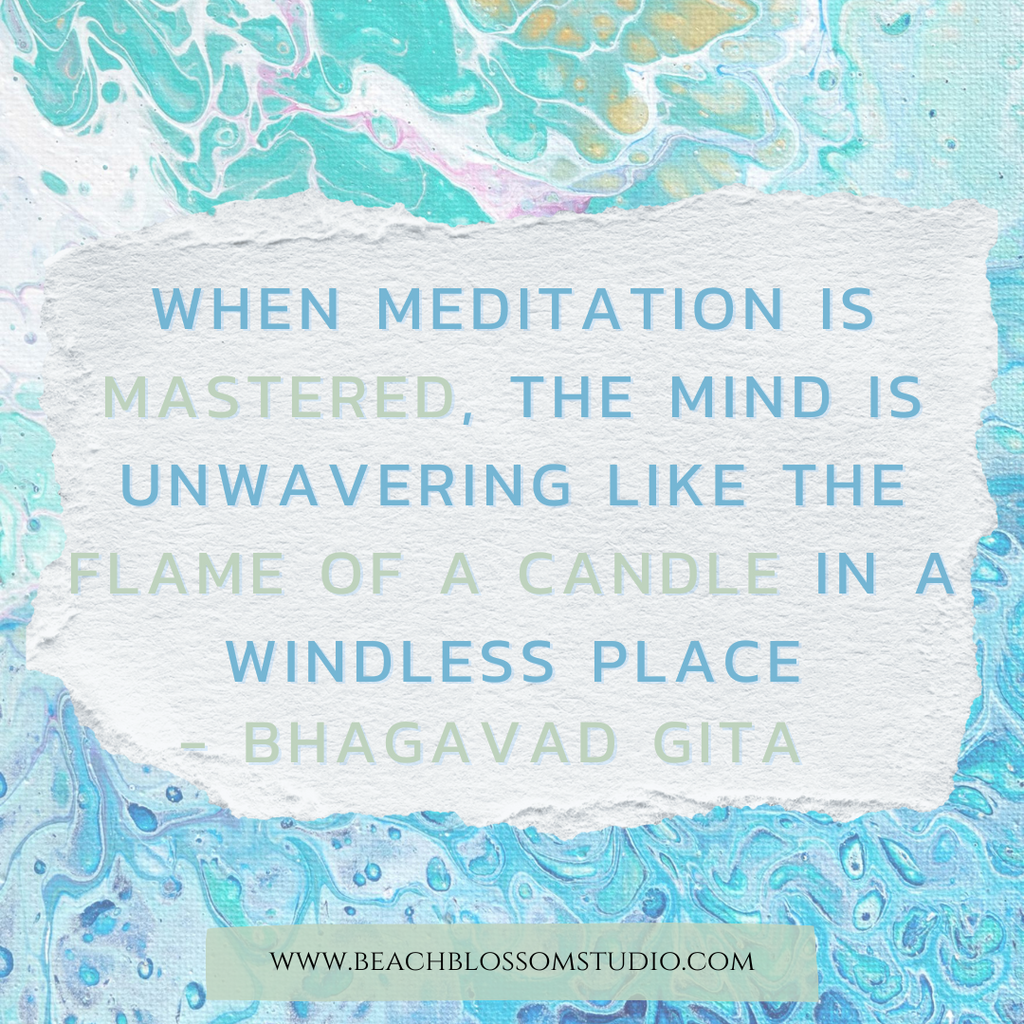The Beginner’s Guide To a Meditation Practice

Welcome to the world of meditation—a practice that can bring peace, clarity, and balance to your life. Whether you're looking to calm your busy mind, reduce stress, or simply find a moment of tranquility, meditation is a wonderful tool that anyone can learn and benefit from.
Are the pressures of daily stress or the ongoing challenges you face at work and home starting to take a toll on your overall well-being? If you find that these burdens are affecting your life, health, and overall happiness, it might be the perfect moment to introduce meditation exercises into your routine. We have put together this article so you can read all the basic things that you need to know.

Why Should I Consider a Meditation Practice?
You might find yourself pondering the validity of meditation practices and whether the touted benefits hold any real substance. The answer, in a nutshell, is a resounding yes. The practice of meditation brings forth a diverse array of advantages that can significantly enhance various aspects of your life. If you're curious about achieving better health, an improved mood, enhanced sleep, and heightened vitality, then meditation holds the potential to be a game-changer.
Imagine waking up with a renewed sense of energy and focus, ready to take on the day with a positive mindset. Meditation can lead you there. By engaging in this practice, you'll discover a path to diminishing stress, reducing frustration, and quelling worrisome thoughts.
If you've been grappling with feelings of anxiety, depression, or overall weakness lately, if sleep and concentration have become elusive, or if you simply yearn for the embrace of well-being, tranquility, and happiness, then it's time to seriously contemplate incorporating meditation exercises into your routine.
What Do I Need in Order to Start a Meditation Practice?
If you've reached the point where you're considering giving meditation a shot, the initial key ingredient you require is determination. Unlike many other practices, meditation doesn't demand elaborate tools or intricate techniques. What it truly calls for is your inner resolve and the genuine desire to explore its potential. Of course, time is a factor, too—a small investment of your day is sufficient. Setting aside just 10 to 15 minutes every other day is an ideal starting point.
However, there's a cardinal principle you must grasp as you contemplate entering the world of meditation. It's a rule that lays the foundation for your journey: relaxation is non-negotiable. Successful meditation isn't a result of rigid effort; rather, it blooms from a state of complete relaxation, both in the body and in the mind.
As you sit down to meditate, it's not about forcing thoughts away or allowing yourself into a different state of mind. Instead, it's about letting go and allowing yourself to sink into a gentle tranquility. This is where the true essence of meditation lies—nurturing a peaceful space within yourself.

How Can I Relax?
We already established that you need to relax in order to meditate. But is this easy? For a beginner, it might be quite difficult. Most beginners in relaxation and meditation practices find themselves thinking about daily problems and worries when trying to meditate, instead of clearing their minds and enjoying the state of calmness. Others get bored when trying to empty their minds. For sure, these can not be called “successful meditation sessions”. Still, even if this happens to you, you should know that you will definitely be better with time and enjoy meditation completely, in case you are determined to make it work.
But let’s start from the beginning. In order to benefit from complete relaxation, you need to start your meditation techniques at the right time. Kids running through the house, a loud TV, and a noisy neighbor might not be the perfect premises to start meditating. You need peace, quietness, a good atmosphere, cozy decor, or a welcoming natural ambient. After you find a peaceful moment, try to let your body relax, push the tension down, and loosen your muscles. Feel how your entire body feels better – this will help you clear your mind later on.
Are there Different Types of Meditation Practices?
There is a great range of meditation practices, no doubt about that. What you should do, as a beginner, is to try them all and find the one that suits you best. But which are these different types of practices? You can choose from visualization exercises (when you are picturing positive, beautiful elements, places or moments), concentration exercises (when you are trying to focus on your body’s sensations and stimulants) breathing exercises (which are used in all types of meditation, as an essential premise) and many more, including specific meditation exercises that regard a better sleep, better appetite, less stress and other problems that need to be eliminated from your daily life.

Final Thoughts
Remember, the journey toward successful meditation is an evolving one. Even if you currently grapple with distractions, impatience, or the sensation of a racing mind, don't be discouraged. Every moment spent in meditation contributes to your progress. With each session, you inch closer to the calm and fulfillment that meditation can offer. So, stay determined, embrace the process, and let's venture further into the art of meditation together.

Leave a comment